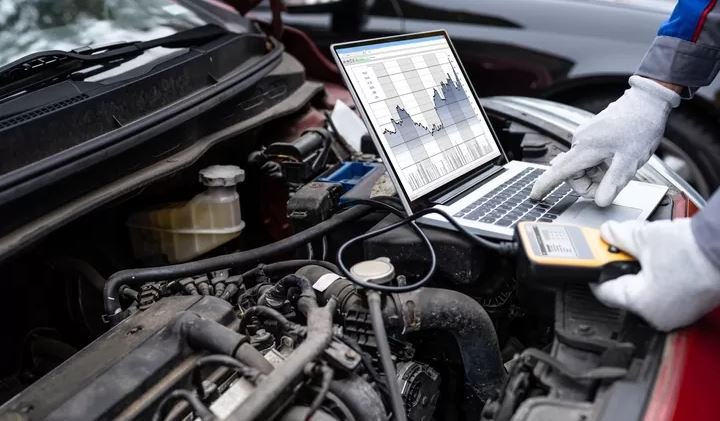The role of computer systems in modern car engines is crucial for optimizing performance, efficiency, and safety. These systems have revolutionized how engines operate, offering unprecedented control and precision. This post explores how computer systems enhance engine functionality, contribute to vehicle performance, and ensure reliability in modern automobiles.

Precision in Engine Control
The role of computer systems in engine control involves managing various engine functions with high accuracy.
- Engine Control Units (ECUs): The ECU is the brain of the engine, processing data from various sensors to optimize engine performance. It adjusts fuel injection, ignition timing, and air-fuel ratios based on real-time conditions. This precise control ensures optimal engine performance and efficiency.
- Adaptive Learning: Modern ECUs can learn and adapt to driving conditions and driver habits. This adaptability improves fuel efficiency and engine response over time. The ECU modifies engine parameters to match driving conditions, enhancing overall vehicle performance.
- Emission Control: Computer systems play a critical role in managing emissions. They regulate the air-fuel mixture and control catalytic converters to reduce harmful emissions. By optimizing combustion, these systems help meet stringent environmental regulations and improve air quality.
Enhancing Performance and Efficiency
The role of computer systems extends to enhancing both performance and fuel efficiency in modern engines.
- Turbocharging and Supercharging: Computer systems manage turbochargers and superchargers to boost engine power. By controlling boost levels and managing air intake, these systems enhance engine performance while maintaining efficiency. This technology allows for powerful yet fuel-efficient engines.
- Variable Valve Timing: Advanced computer systems control variable valve timing (VVT), which adjusts the timing of the intake and exhaust valves. This adjustment improves engine efficiency and performance across different RPM ranges. VVT technology helps achieve better fuel economy and dynamic performance.
- Fuel Management: Modern engines use computer systems to manage fuel injection with precision. They calculate the optimal amount of fuel needed based on driving conditions and engine load. This precise fuel management improves fuel efficiency and reduces emissions.
Monitoring and Diagnostics
The role of computer systems in monitoring and diagnostics is essential for maintaining engine health and performance.
- Real-Time Diagnostics: Computer systems continuously monitor engine performance and diagnose potential issues. They provide real-time data on engine health, allowing for timely maintenance and repairs. This diagnostic capability helps prevent major engine failures and prolongs engine life.
- Trouble Codes: When an issue arises, the ECU generates trouble codes that help mechanics identify specific problems. These codes assist in diagnosing and repairing engine issues efficiently. Access to accurate trouble codes simplifies the repair process and ensures effective maintenance.
- Performance Monitoring: Computer systems track various performance metrics such as engine temperature, RPM, and fuel consumption. They provide valuable insights into engine performance and help identify areas for improvement. Performance monitoring aids in optimizing engine efficiency and reliability.
Conclusion
The role of computer systems in modern car engines is integral to enhancing performance, efficiency, and reliability. By providing precise control, improving fuel management, and offering real-time diagnostics, these systems have transformed engine technology. As automotive technology continues to evolve, computer systems will remain central to advancing engine performance and ensuring vehicle reliability.

